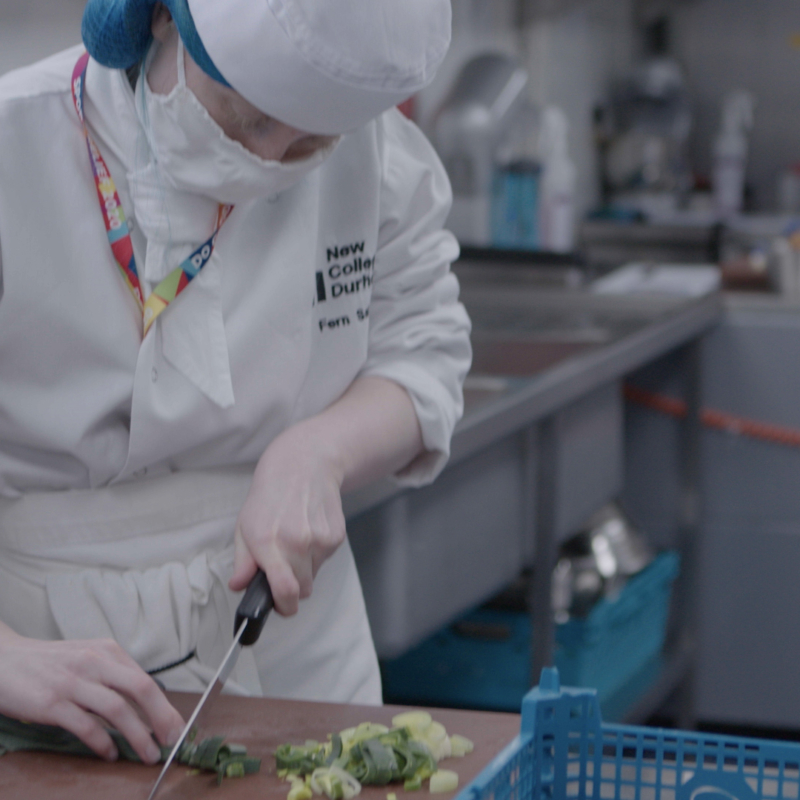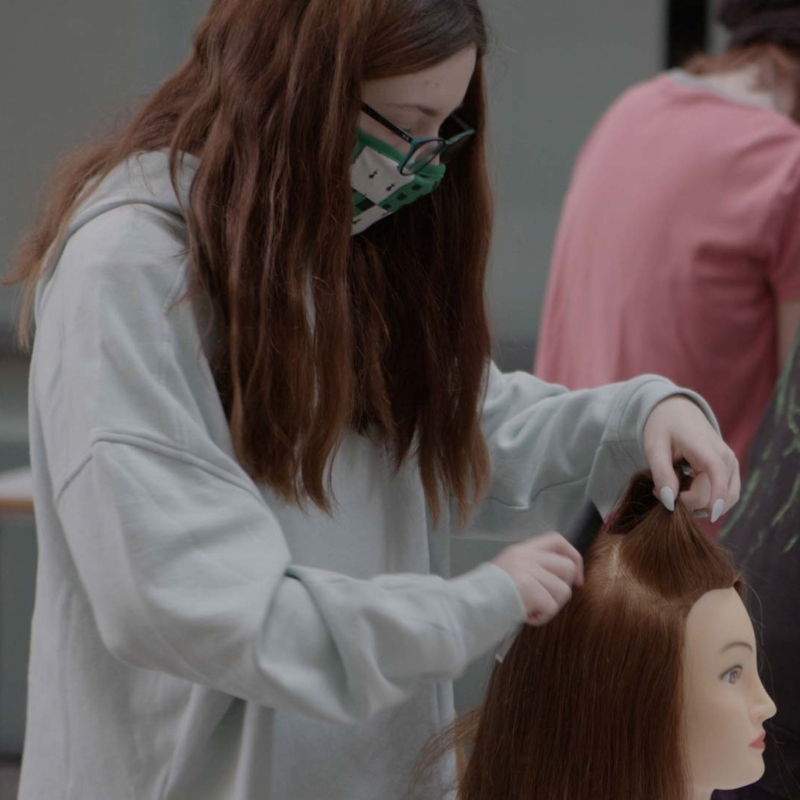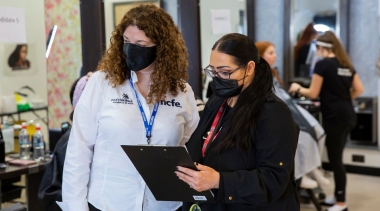Lindsay Gaskill has extensive experience in the FE sector and currently works across all skills development areas for both staff and students. Here she shares her views on the college’s strategy of using WorldSkills UK Competitions to develop, stretch and challenge students and the benefits this brings, not only for her own college but others in the region, as well as employers:
The College has demonstrated outstanding participation in competitions both regionally and nationally and within the North East Consortium of Inter-College Competitions to promote skills and encourage participation within UK Skills, as well as regional and national competitions. I have integrated and trained SEND learners with mainstream students who have gone on to compete in both regional and national competitions and achieved various awards and medals.
Competition activity is an important component of curriculum design, and the intent is to develop, stretch and challenge students, provide opportunities for students to step outside their comfort zone and showcase their skills and talents within their respective vocational areas. Skills development also gives future employers a more highly-skilled, work-ready employee. The senior management team is very supportive of the initiatives to develop skills attainment, both morally and financially and wants the students to have an enriched learning experience whilst at the college. I lead on regional and national competitions and coordinate competition activities across various curriculum areas and liaise with external stakeholders to ensure they are promoted and quality-assured.

New College Durham supports local, regional and national skills development through assessing skills and knowledge with CPD initiatives and support mechanisms involving surrounding colleges and promotes skills regionally and nationally as well as guiding and supporting other colleges in the surrounding areas, so the whole region benefits. Dissemination of the CPD initiatives is supported through masterclasses on developing knowledge, skills and behaviours and exploring new technologies. This involves regional and invited colleges from other regions to participate within scheduled masterclasses and skills development forums. Competitors encounter employers through interacting with judges and sponsors from local, regional and national businesses, meeting the Gatsby benchmark of linking curriculum learning to careers well as being able to showcase and demonstrate their skills directly to employers at high profile events, meeting the Gatsby benchmark for encounters with employers.
The most significant challenge the college faces is increasing and maximising participation of staff, students, apprentices and regional educational providers. If a college achieves WorldSkills UK Centre of Excellence status, the college not only benefits from one-to-one coaching with WorldSkills UK experts bringing international insights back to the UK, but also learning how competition activity can be embedded effectively within the curriculum and creating a robust continuing professional development (CPD) provision for regional educational establishments. The priority would be to develop the use of competition CPD activities to increase participation and add new dimensions to teaching, learning and assessment. Through this we endeavour to create new partnership opportunities with other education establishments and would or could align the competencies and standards employers and industry would ideally expect from students embarking on their educational journey.
A crucial factor for employers and future work placement is students’ motivation and eagerness to stretch their knowledge and abilities and encourage independent learning, competition is key to all of this. Aside from technical skills development, competitions also enable students to hone their employability and attitude skills such as time management, reliability, resilience, teamwork and self-confidence. These skills are increasingly called for by employers across a range of sectors for individual performance management and competitors who raise standards in the workplace for others to benchmark themselves against.

The benefits of embedding competitions in curricula also affects educators who can take advantage of the opportunity to be more creative and use more innovative approaches to enhance their teaching practice. Plus they can be sure that the standards being used in competitions continually reflect the changing needs of employers, helping to build a workforce of young people who can help UK businesses perform better in the home market and internationally.





